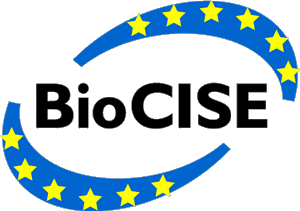 |
Resource Identification for a Biological Collection Information Service in Europe |
 |
Resource Identification for a Biological Collection Information Service in Europe |
[Home | Publications and References | The Survey | Collection catalogue | Software | Standards and Models]
The University of Sevilla can refer to a long standing tradition in Mediterranean organism research. It houses the secretariat of the OPTIMA commission for floristic investigation and spearheads an international programme of field investigations and biological resources studies. It participates in the Flora Iberica Project and coordinates a project on the biodiversity of N. Morocco.
The University of Sevilla will participate in the project mainly through the establishment and coordination of contacts to holders of collection databases and datasets and by the documentation of such contacts. Sevilla will also participate through contacts with the other participants by letters, fax and phone, on the aspects covered by the project and by organizing one of the general meetings.
During the last few years, the Department of Organism Biology and Ecology of the University of Sevilla (formerly Department of Botany), has been involved in the study of biodiversity of vascular organisms from the Mediterranean Area. This has covered taxonomy in its wider sense, including monographic studies on several genera of Angiosperms, studies on karyology, palynology and reproductive systems of vascular organisms, and important contributions to the chorological, taxonomical and floristic knowledge of W. Mediterranean organisms.
The Department houses the secretariat of the OPTIMA Commission for Floristic Investigation (B. Valdés), responsible for an international programme of field investigations and biological resources studies in the Mediterranean Area. This programme generates an important amount of data which would need an uniform handling of results through an appropriated datasystem. The Department participates in the Flora Iberica, which covers continental Spain, Portugal and the Balearic Islands (two volumes already published), in the Med-Checklist project (three volumes published), and coordinates a checklist with keys on the Flora of N. Morocco. The Department currently keeps (J. Pastor) an important database of karyological data on Spanish vascular organisms, which has been used to prepare a Chromosome Atlas of W. Andalucian organisms, now in print.
© BioCISE Secretariat. Email: biocise@, FAX: +49 (30) 841729-55
Address: Botanischer Garten und Botanisches Museum Berlin-Dahlem (BGBM), Freie
Universität Berlin, Königin-Luise-Str. 6-8, D-14195 Berlin, Germany